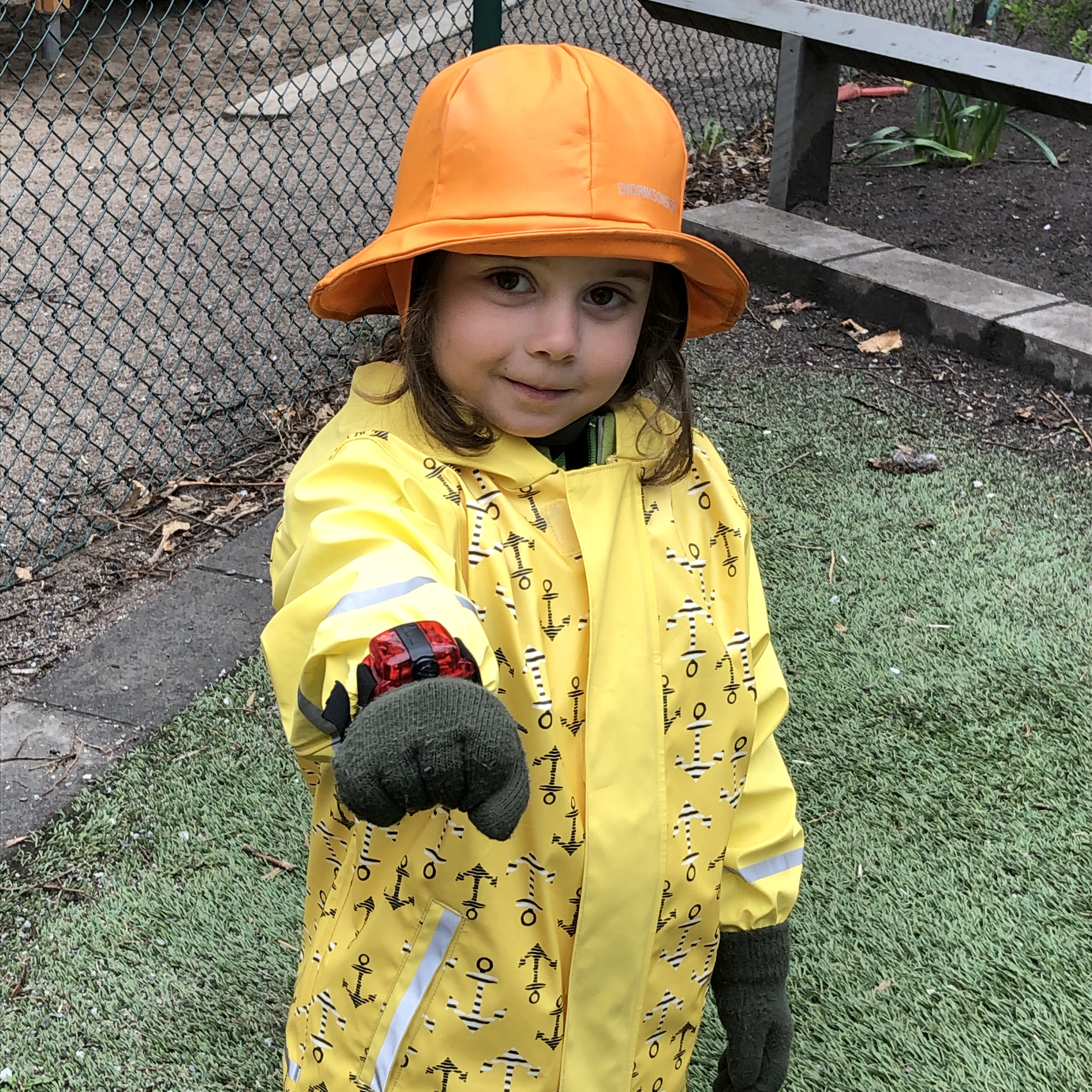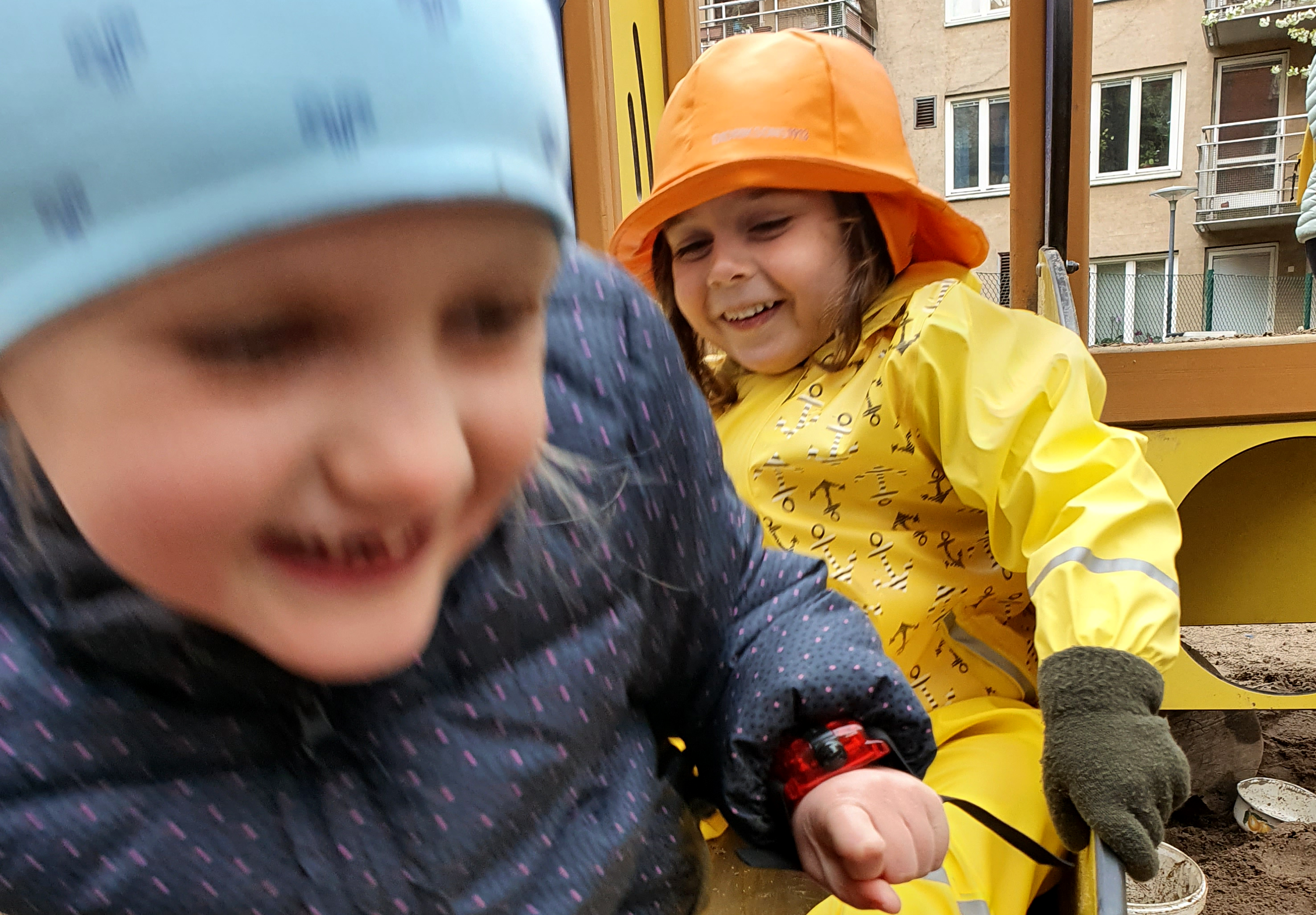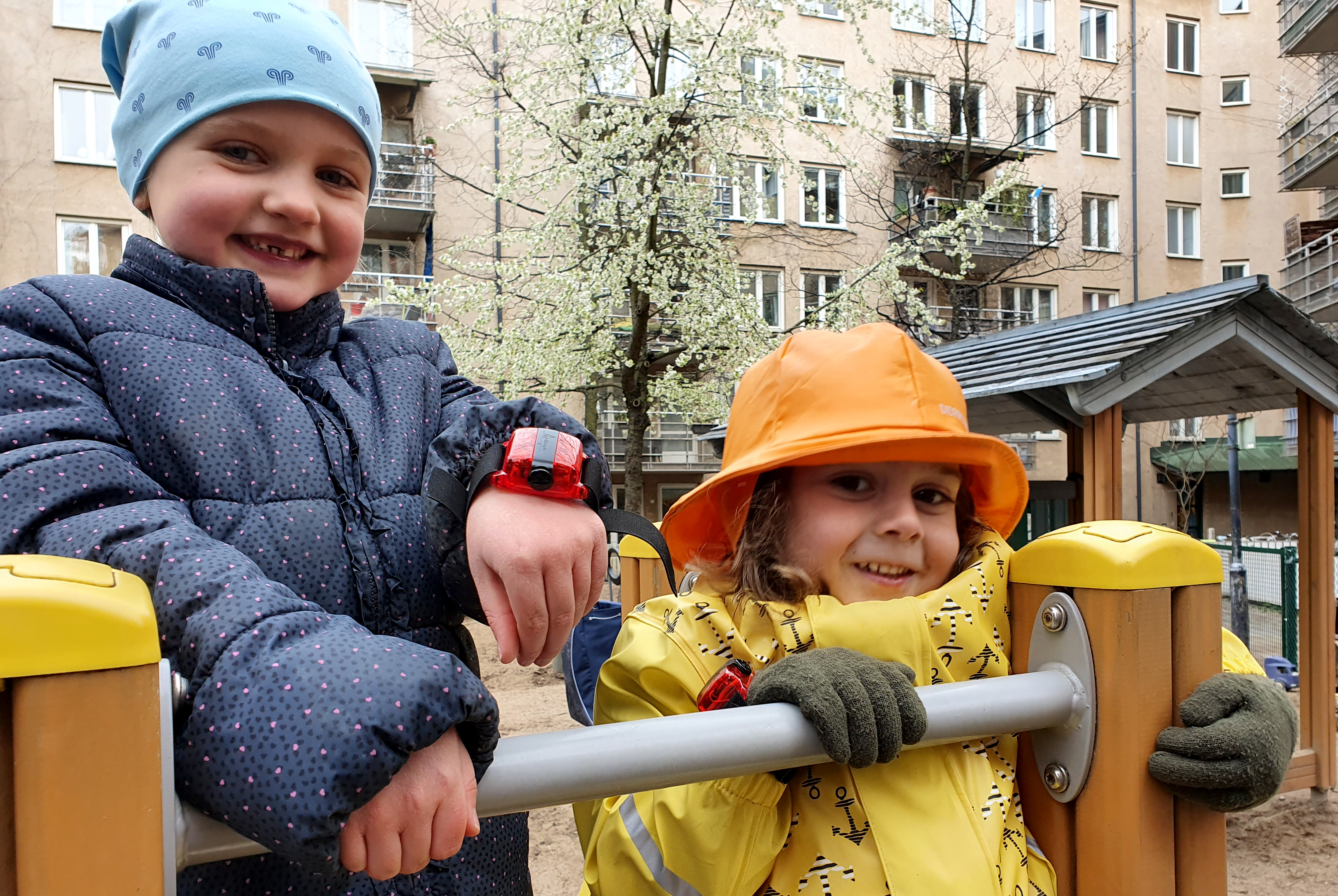Physical activity in preschools in the City of Stockholm
Turn on english subtitles. Press Settings (gear) and select Undertexter Engelska.
Approximately 4 000 children in124 preschools in the City of Stockholm will participate in a project on physical activity in preschool during autumn 2020 and spring 2021. The project will be conducted by the Center for Epidemiology and Community Medicine (CES) in collaboration with public preschools in the City of Stockholm.
Turn on english subtitles. Press Settings (gear) and select Undertexter Engelska.
Physical activity plays a vital role in promoting good health and development already at an early age. The World Health Organization (WHO) recommends that children should be physically active at a moderate to vigorous intensity level for at least 60 minutes each day. Unfortunately, several studies show that many children do not reach the recommendation both in Sweden and internationally. Therefore, efforts to promote children's physical activity are urgently needed.
In Sweden, 95 percent of all children between the ages of 2 to 5 years attend preschools. Preschool in Sweden contributes to children’s development physically, mentally and cognitively. Preschool is an important arena that affects children's health behaviors. In addition, children are the healthiest citizens in society, and it is important to create the right conditions so that they can develop healthy behaviors.
The project will investigate whether a strategy for physical activity has any impact on preschooler’s physical activity levels. The strategy contains factors such as minimum outdoor time and organized physical activity. This project has a public health perspective and the aim is to enable all children to be physically active, regardless of factors such as preschool playground size, gender or parental socioeconomic status. In order to evaluate whether a strategy to promote physical activity is effective, the preschools in the project will participate in a so-called randomized controlled study. Preschools will be divided into intervention preschools which follow the strategy and its activities, and control preschools which keep their usual practice during the intervention period.
Both control preschools and intervention preschools are of great importance for the project. By having control preschools, we can evaluate if the activities in the intervention preschool affect children’s physical activity levels. The control preschools also makes it possible to perform the measurements at any time of the year. Interventions- and control preschools are always compared in the same measuring week, that is, under the same weather conditions.

The physical activity of all children in participating preschools in the project will be measured at the beginning of the study for seven days by accelerometers (activity meters) that children wear on the wrist. Accelerometers are harmless, and most children consider them exciting accessories to wear. The same measurement procedure is repeated six months later.
In addition to accelerometer measurements, measurement of the children's weight, height, waist circumference and hand grip strength (for more information on the hand dynamometer) will be conducted with validated tools. These measurements will be carried out by trained staff from CES.
If restrictions due to covid-19 remain in place in autumn 2020, all measurements will be conducted outdoors.
During the week that the child is wearing an accelerometer, the legal guardians will be asked to respond to a brief questionnaire each day (takes about 2 minutes to answer).
A representative sample corresponding to about ten percent of each district's preschool children will be asked to participate in the study. The first measurement period is from September to December 2020. The second measurement period is between March and June 2021.
After the first measurement week, the intervention preschools will receive the intervention strategies and will be followed up on these activities for the following six months.
The control preschools make no changes to their usual activities apart from participating in measurements and surveys in the project.

Legal guardians play a significant role in the project by giving their consent and allowing their child to participate in the project. The project poses no known risks to the children. As legal guardians, you will be asked to respond to a questionnaire about your child's health status and sleep habits. All questionnaires are in accordance with GDPR (The General Data Protection Regulations) and have obtained ethical approval.
As legal guardians, you will receive your child's results during the measurement weeks after the project is completed. Those results provide an objective and clear description of your child's physical activity level, both during preschool time and leisure time. We hope and believe that this information will be interesting and inspiring for you as legal guardians.
The role of the preschool teachers in this project is to help administrate consent forms to legal guardians, and to answer any questions about the project that legal guardians may have. When field workers from CES arrive at your preschool for measurements, help from preschool teachers is needed to ensure that participating children are available for measurement at the scheduled time. Preschool teachers will also help to collect the accelerometers when the measurement week is over.

After the second measurement period which takes place from March to June 2021, the project will be evaluated. The results will be analyzed, reports and scientific articles will be published. The project will be one of the largest of its kind in the world and will probably attract great attention both nationally and internationally. The project is also important as it is deeply anchored to the political goals of promoting physical activity as is stated in the City of Stockholm's budget for preschools 2020-2022.
This project is expected to contribute to increased awareness of the importance of promoting physical activity for children's physical, mental and cognitive development. The activities included in the intervention will support the Stockholm City's work for equitable preschools where the need for physical activity and being outdoors for all children are catered for.
Here's how the project goes for participating preschools: